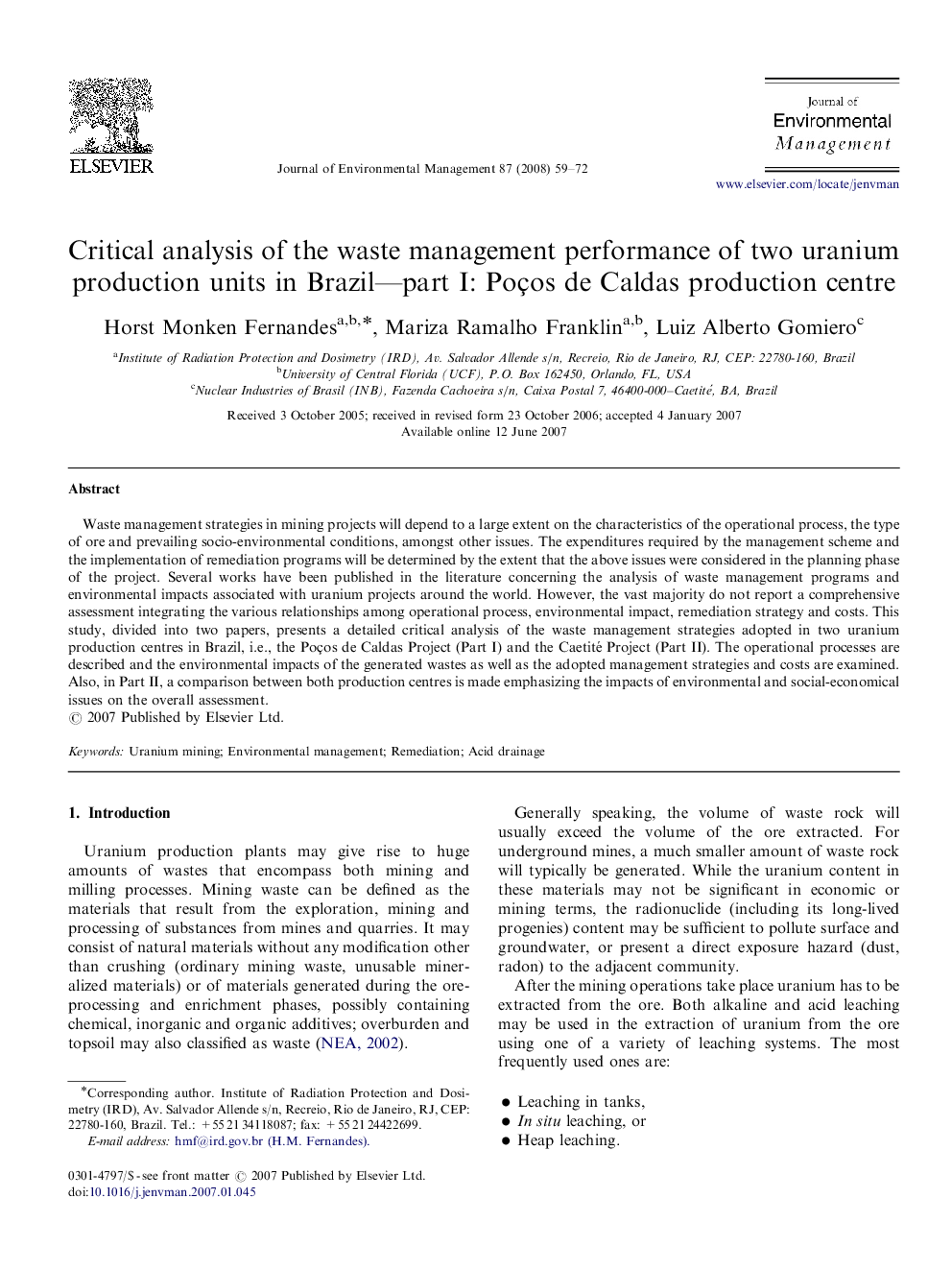| Article ID | Journal | Published Year | Pages | File Type |
|---|---|---|---|---|
| 1058144 | Journal of Environmental Management | 2008 | 14 Pages |
Waste management strategies in mining projects will depend to a large extent on the characteristics of the operational process, the type of ore and prevailing socio-environmental conditions, amongst other issues. The expenditures required by the management scheme and the implementation of remediation programs will be determined by the extent that the above issues were considered in the planning phase of the project. Several works have been published in the literature concerning the analysis of waste management programs and environmental impacts associated with uranium projects around the world. However, the vast majority do not report a comprehensive assessment integrating the various relationships among operational process, environmental impact, remediation strategy and costs. This study, divided into two papers, presents a detailed critical analysis of the waste management strategies adopted in two uranium production centres in Brazil, i.e., the Poços de Caldas Project (Part I) and the Caetité Project (Part II). The operational processes are described and the environmental impacts of the generated wastes as well as the adopted management strategies and costs are examined. Also, in Part II, a comparison between both production centres is made emphasizing the impacts of environmental and social-economical issues on the overall assessment.
